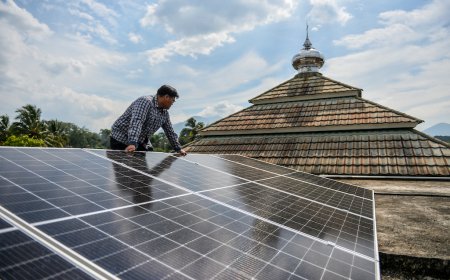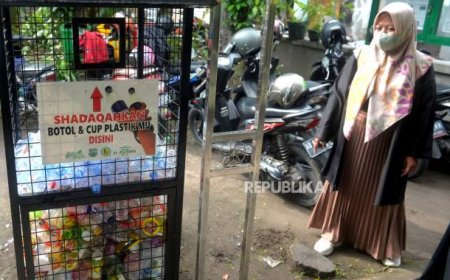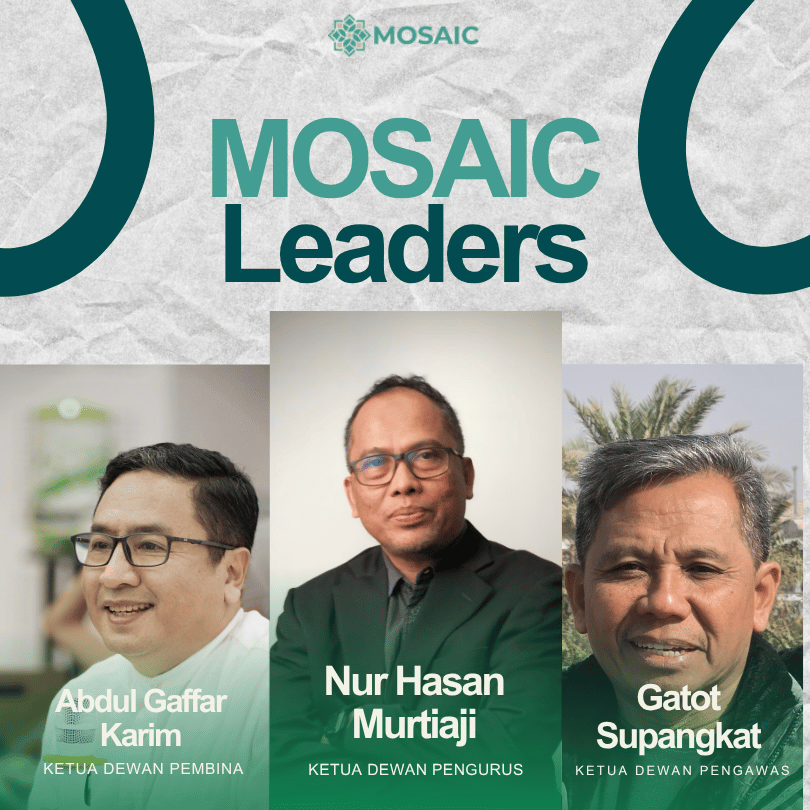Interfaith role in energy transition
The commitment for renewable energy transition requires more than policy.
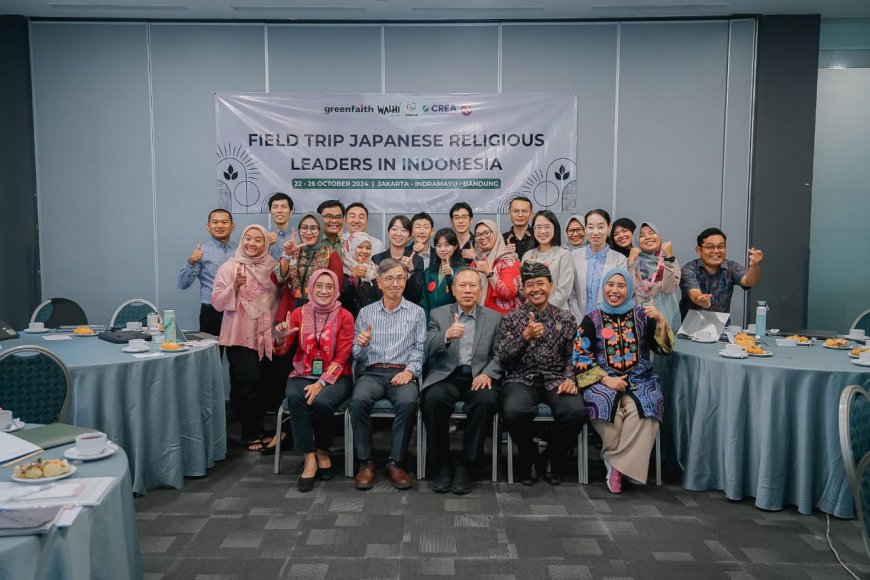
MOSAIC-INDONESIA.COM, JAKARTA — Extreme weather changes, rising daily temperatures, and erratic seasonal shifts are evidence that the climate crisis is no longer a threat, but is present in the midst of life. The increasingly tangible impact of climate change has moved many parties to action, including governments and interfaith groups in Indonesia and Japan.
The Indonesian government has even committed to achieving net zero emissions by 2060, an important step in energy transition from fossil to renewable energy. Nevertheless, this commitment requires more than just policy; the support of the wider community, including from religious communities, is urgently needed.
For this reason, Greenfaith Indonesia and GreenFaith Japan held a dialogue entitled “Dialogue on Energy Transition in Indonesia and Interfaith Role” in Jakarta, Wednesday (23/10/2024).
The event brought together various stakeholders, from government, religious figures, academics, to religious-based organizations with GreenFaith Japan and 9 representatives of interfaith groups from Sakura, Japan, to discuss the energy transition and its impact on society. From Indonesia, the leaders of the Muhammadiyah, Hindu, Buddhist, Konghuchu Center were present. There was also a MFA presentation on the Role of Youth and Interfaith in Environmental Campaigns and Education, as well as an exposé from Eko Cahyono of the Sajogo Institute's Study Center.
One of the topics in the spotlight is the Indramayu power plant, whose funding comes from Japan, as well as the role of religious communities in advocating for more sustainable energy policies.
Cross-religious role
The energy transition is not limited to technical issues. This issue is also a moral issue that demands the role of religious communities. In this event, various religious figures talk about how their religious beliefs and teachings are in line with the principles of sustainability and environmental responsibility.
Hening Parlan, Director of Green Faith Indonesia, in his speech affirmed the importance of the transition from fossil energy to environmentally friendly energy. According to him, religion has a big role in moving people's consciousness to safeguard the earth.
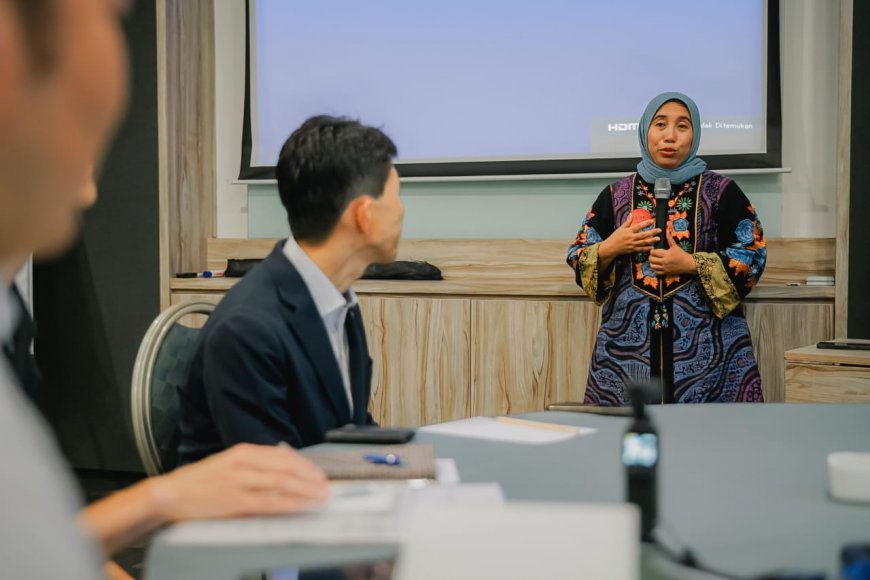
“This meeting is important to delve into how interfaith can contribute to efforts to save the environment. Through this collaboration, we can accelerate the transition to cleaner energy,” Hening said.
Yoshiro Sada, Director of Green Faith Japan, added that Japan and Indonesia have a long history. Japan, through its funding at Indramayu Power Plant, is in the spotlight in this dialogue. According to Yoshiro, it wants to further study the impact of Indonesia's dirty energy use and how Japan can take more decisive steps in supporting a sustainable energy transition.
“We are responsible for investing in Indonesia. We will bring this information to the Japanese public and parliament to push for greener policies,” Yoshiro stressed.
Indramayu Power Plant became one of the most discussed topics in this meeting. The presence of the power plant, which still relies on coal as the main energy source, was judged to contradict energy transition efforts.
Local residents around the power plant are also rumored to have suffered negative impacts as a result of the activity. The interfaith community from Japan who attended the visit hopes to advocate for the closure of this power plant in favor of cleaner and safer renewable energy for the environment.
Luckmi Purwandari, Head of the LHK Generation Development Center of the Ministry of Environment, admitted that the main problems currently faced by all humans are climate change, loss of biodiversity, and pollution from garbage and waste
Luckmi explained that various efforts have been made by the government, in this case the MoJ. One of them is cultural efforts to promote eco-friendly lifestyles through the approach of the younger generation.
Lucki appreciated the interfaith dialogue event organized by GreenFaith Indonesia, while expecting support from all elements of society to support the government's program towards zero emissions by 2060.
Collaboration for the future
Prof. Syafiq A Mughni, Chairman of PP Muhammadiyah, in the discussion session stated that all religions want the salvation of man, nature, and the environment. However, the biggest challenge comes from human behavior that actually damages the environment. Therefore, it is important for religious leaders to raise awareness and move their communities to take real action in saving the environment.
“Religion should be a real force, not just potential. We have a noble duty to save the earth, and cross-religion can be a great force in making that happen,” Shafiq said.
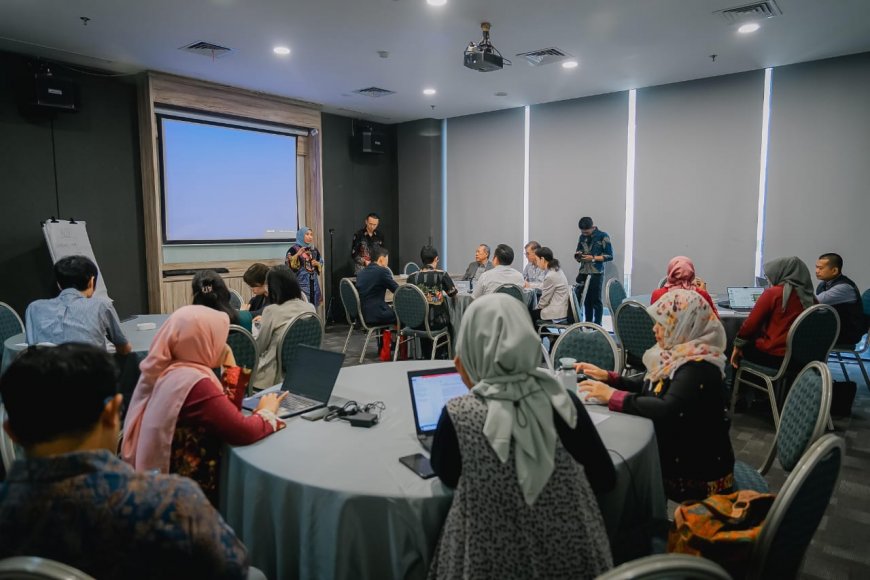
Meanwhile, Pardjono, a representative of the Buddhist religious group, highlighted how Javanese spiritual values in Buddhism align with the concept of harmony of the universe. “If we are able to take care of ourselves, then we should be able to take care of the universe. It is our spiritual responsibility to look after the environment,” he said.
From the Hindu community, Pinandita Astono also appreciates this interfaith dialogue. He asserted that the concept of Tri Hita Karana—which includes a harmonious relationship between humans and God, fellow humans, and the environment—is in line with Greenfaith's mission of safeguarding the preservation of nature.
Aldi Destian from the Higher Assembly of Agama Konghuchu Indonesia said that the essence of harmony is not to be extreme in using natural resources. “So that our lives must be in harmony with nature and can save energy that is used both in everyday life and in worship.”
Aldi explained that the approach of Conghuchu religious leaders has done so far is to create environmentally friendly places of worship, such as Hemat Energy Shrine that remain convenient to use for worship. While the Conghucu scholars also play a role by writing the perspective of the environment according to the Conghucu.
“There is also a movement of Conghucu youth doing tree-planting activities around the house of worship as a form of caring for nature and being devoted to nature,” he explained.
Cross-religious dialogue was judged to be an important step in showing that the energy transition is not just the job of government or the private sector. Cross-faith collaboration is expected to drive change at the grassroots level, build collective awareness, and urge more environmentally friendly policies for a more sustainable future.

